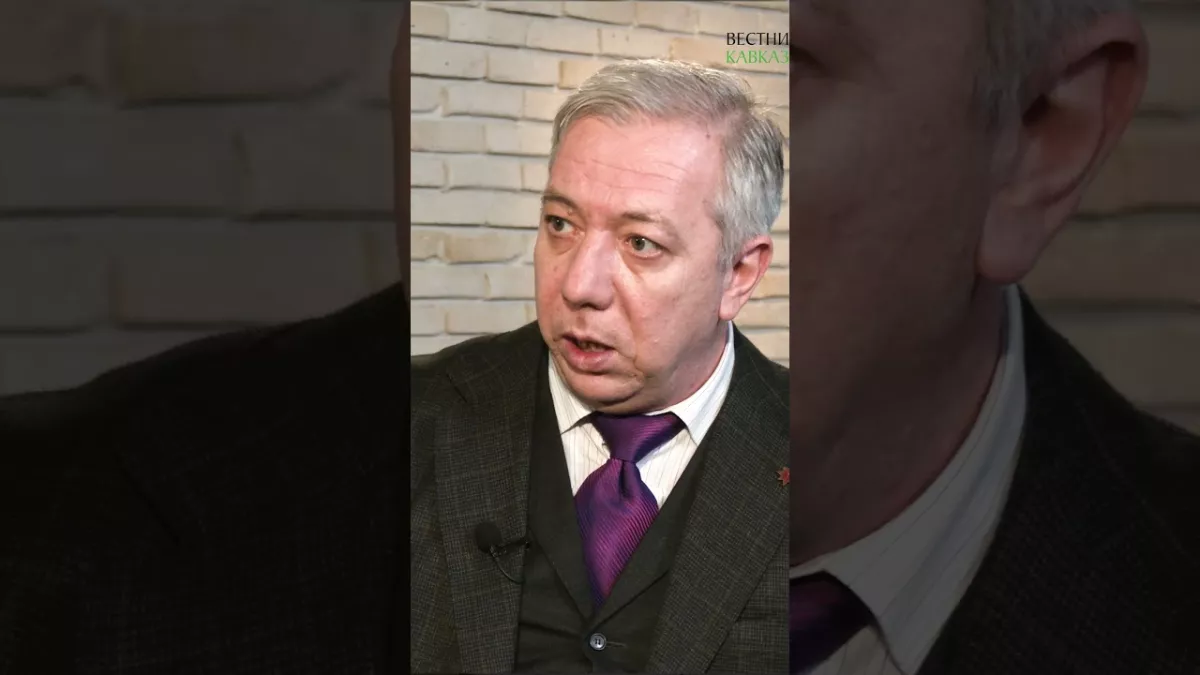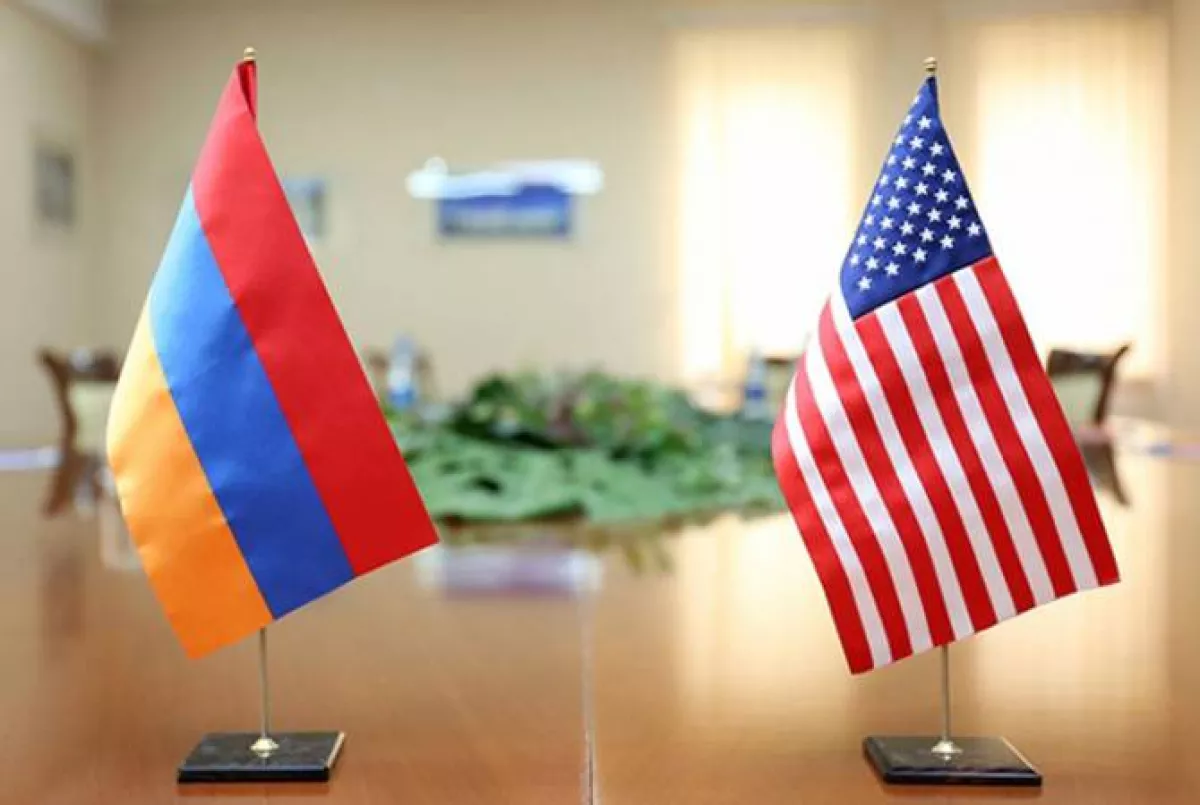Zangezur Corridor as centre of geopolitical solitaire Expert opinions on Caliber.Az
Recently, the President of Türkiye, Recep Tayyip Erdoğan, made a number of statements regarding the Zangezur Corridor, noting in particular that Ankara hopes to reach a consensus between the parties on this issue.
“The Zangezur Corridor will benefit not only Azerbaijan, Armenia, and Türkiye, but also other countries in the region. We consider this route extremely important from a geo-economic perspective. This line will connect geographic regions beyond our area and will revitalise trade. We also hope it will become a symbol of reconciliation, rather than a source of disagreement. I believe that we, as countries of the region, will be able to resolve this issue based on consensus,” the Turkish leader told journalists accompanying him during his visit to Lefkoşa.
Erdoğan’s optimistic message attracts significant interest, especially considering that Baku and Yerevan at this stage are commenting rather cautiously on the progress of negotiations regarding the Zangezur Corridor.
How likely is it that any positive progress has been made on this negotiation track, given that Ankara, judging by Erdoğan’s words, is already building quite definite plans for cooperation in this direction? Azerbaijani and Turkish political scientists shared their views on this question with Caliber.Az.

Thus, Azerbaijani macroeconomist and management theory specialist Kamil Asgarkhanov believes that American intervention in the issue of control over the Zangezur Corridor has disrupted the plans of many players.
“In fact, even before the Americans, the British had already expressed their majoritarian interest over the entire Middle Corridor. In short, the Zangezur issue has already reached the level of global players, and now its fate will be decided precisely by these actors — the USA, the UK, Russia, and China. Erdoğan’s statement is, in essence, London’s position,” the political scientist noted.
In today’s realities, the Zangezur issue is directly linked to the situation around Iran, or more precisely, to the second “hot” phase of the conflict, which, according to the political scientist, is already on the horizon.
“And, apparently, it will be impossible to avoid Russian presence during the corridor’s implementation; handing over control of this narrow but extremely important land segment to just one party will not work, especially since Russia is strengthening its military group based in Armenia. To put it simply, there is currently a bargaining over who will get what percentage of the final benefits,” Asgarkhanov concluded.

In turn, Turkish political analyst Kerim Has shared his perspective on why the Zangezur Corridor occupies a central place in Türkiye’s regional policy.
“I believe Erdoğan is operating on the assumption that relations between both Azerbaijan and Armenia with Russia will not be restored quickly. In Ankara, there is a conviction that Moscow is losing influence in the South Caucasus — over the two key regional states, Azerbaijan and Armenia. In this context, by offering political and economic solutions, Türkiye seeks to further strengthen its position in the region. One such solution is the Zangezur Corridor, around which the entire logic of Turkish strategy is being built,” the political analyst asserted.
In his view, the opening of this route is not just a regional initiative, but a tool for restructuring the post-Soviet space: “Ankara believes that Russia will no longer be able to return to the role of guarantor of the Zangezur Corridor, as envisaged in the 2020 Trilateral Statement. Under these conditions, both Armenia and Azerbaijan, despite their disagreements, are coming to the conclusion that they have no other realistic option but to open the corridor. For Armenia, it is a chance to emerge from political and transport isolation; for Azerbaijan, it is the opportunity to establish a strategic link with Nakhchivan and Türkiye. Of course, there could be different formats of implementation — for example, the involvement of an American private company or a joint structure with state participation. But the format is secondary. What matters most is political consensus, which, in my opinion, is already taking shape.”
Has also noted that Armenia is gradually revising its approach to foreign policy and security matters.
“Under Pashinyan, Armenia is increasingly distancing itself from Russia. This is evident not only from diplomatic moves, but also from personnel decisions, public statements, and international activity. And this is not merely about diversifying foreign policy — it’s an attempt to replace Russia as the primary security provider. While this doesn’t mean that Türkiye will fully replace Moscow, Ankara is prepared to take on certain functions. Moreover, my impression is that Yerevan is now ready to consider Türkiye in this role — albeit with reservations. Within this logic, the Zangezur Corridor becomes an integral part of the new regional security configuration,” the expert said.
He also recalled that the Turkish leader has systematically promoted the idea of opening the corridor over several years: “Since 2020, the President of Türkiye has regularly raised the issue of Zangezur. This is not a one-time initiative, but part of a long-term plan. And lately, these statements have only intensified. Apparently, this is because Erdoğan understands that Armenia’s course is already predetermined: it is moving toward the West — and largely through Türkiye. This applies to political orientation, infrastructure decisions, and military ties, so it’s no surprise that Erdoğan is confident a deal can be reached. He recognises that a window of opportunity has opened — and that action must be taken now, before Russia regains its lost levers of influence. Azerbaijan is developing relations with the US and other Western countries — but it is doing so also through Türkiye. This includes military integration and diplomatic contacts. Since the early 1990s, the Azerbaijani army has followed NATO standards, with Türkiye as its main partner in this process. The Republic of Türkiye also represents Azerbaijan’s interests in a number of international formats. Therefore, Ankara’s participation in the corridor negotiations is a logical continuation of existing practice.”

According to the political analyst, the Turkish president is also well aware of the ongoing negotiations between Armenia and the United States: “He knows about the American side’s interest in offering its infrastructure and business participation in the Zangezur Corridor project. Naturally, Armenia would prefer to see an American — rather than Turkish — company involved in the process. But Türkiye and the US have long coordinated their actions in the South Caucasus, just as they coordinated steps in Syria. There’s nothing new here. Türkiye may formally step back, but retain de facto influence. And this is part of the bargaining,” the political analyst asserted.
The expert emphasised that, under the current security architecture, the West advances its interests through Türkiye.
“Since the collapse of the Soviet Union, the US and the UK have been pursuing their interests in the South Caucasus through Türkiye. This is a strategic alliance. And that is precisely why Erdoğan is acting more assertively — he is aware not only of the Armenia–US talks but also of the broader logic behind the regional dynamics. Against the backdrop of all these shifts, the likelihood of the corridor opening is increasing,” the analyst said with confidence.
He believes that the Zangezur Corridor is part of a broader regional transformation.
“From my point of view, the South Caucasus is moving closer to integrating not into the post-Soviet space, but into the Middle Eastern region — and Türkiye wants to play a key role in this process. The opening of the Zangezur Corridor is not merely a transport project; it is part of a new regional architecture. This is exactly how Ankara views it — as a tool for integrating infrastructure, energy, and security. And that is why Türkiye links the corridor to other components of its broader Middle East strategy.
Remember how Ankara acted in Syria — coordinating its moves with the US, Israel, and the UK. When the Assad regime collapsed and Ahmed al-Sharaa became an acceptable figure for the West, it was Türkiye that played the bridging role. A similar logic is now being applied to the South Caucasus. The West, through Türkiye, is trying to push Russia out of the region. This can only happen through the integration of Armenia, Azerbaijan, and Georgia via Türkiye. And here, the Zangezur Corridor becomes a geopolitical lever. It is no surprise that Erdoğan is showing such keen interest in this matter — we are witnessing a historic redistribution of influence, and Türkiye wants to be among the victors,” Has concluded.








